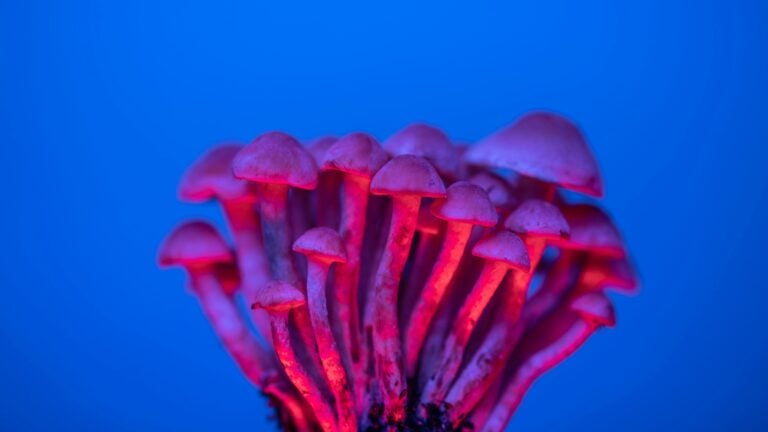The Promise and Future of Psychedelics Research
What is the future of psychedelic research after the recent FDA decision to reject MDMA as a treatment for PTSD?
Listen 49:06
Interest in using psychedelics for mental health treatments has taken off in recent years — but the field was just dealt a major blow on August 9, when the Food and Drug Administration rejected a bid by Lykos Therapeutics to approve the first-ever MDMA treatment for PTSD. The agency said it needed more research to show that the drug was safe and effective. The decision means that an active research community that has formed over the last few decades will likely continue as it started — more underground than above ground.
On this episode, we look at the latest on psychedelics and mental health, along with the challenges to moving the research forward. We hear stories about the battle over MDMA, new questions about whether ketamine can actually help treat depression, and a group that says it’s found the solution to cluster headaches in psilocybin.
Also heard on this week’s episode:
- MDMA or ecstasy or molly, is best known as a party drug — but in recent years, scientists have begun investigating it as a treatment for PTSD. We talk with science journalist Rachel Nuwer about the history of MDMA, the science behind its therapeutic potential, and what the latest FDA ruling means for those trying to seek help. Her book is called “I Feel Love: MDMA and the Quest for Connection in a Fractured World.”
- Over the past few years, ketamine — an anesthetic often used as a powerful party drug — has gained a reputation as a ray of hope for those suffering with treatment-resistant depression. But how do you design a control group for clinical research when it’s so obvious who got the placebo and who got the real thing? Reporter Grant Hill reports on a recent effort to get around this conundrum and the surprising findings it led to.
- Cluster headaches can be debilitating — but a little over a decade ago, a group of sufferers, who call themselves “Clusterbusters,” began investigating the potential of psilocybin, otherwise known as magic mushrooms, to treat their intractable pain. We talk with sociologist Joanna Kempner about her research into the group and their mission, documented in her new book “Psychedelic Outlaws: The Movement Revolutionizing Modern Medicine.”
- Clusterbusters members Ashley Hattle and Andrew Cleminshaw tell the story of how cluster headaches changed their lives, and how the group helped them discover community and solutions — along with something even more life-changing. Hattle’s book is “Cluster Headaches: A Guide to Surviving One of the Most Painful Conditions Known to Man.”
WHYY is your source for fact-based, in-depth journalism and information. As a nonprofit organization, we rely on financial support from readers like you. Please give today.






